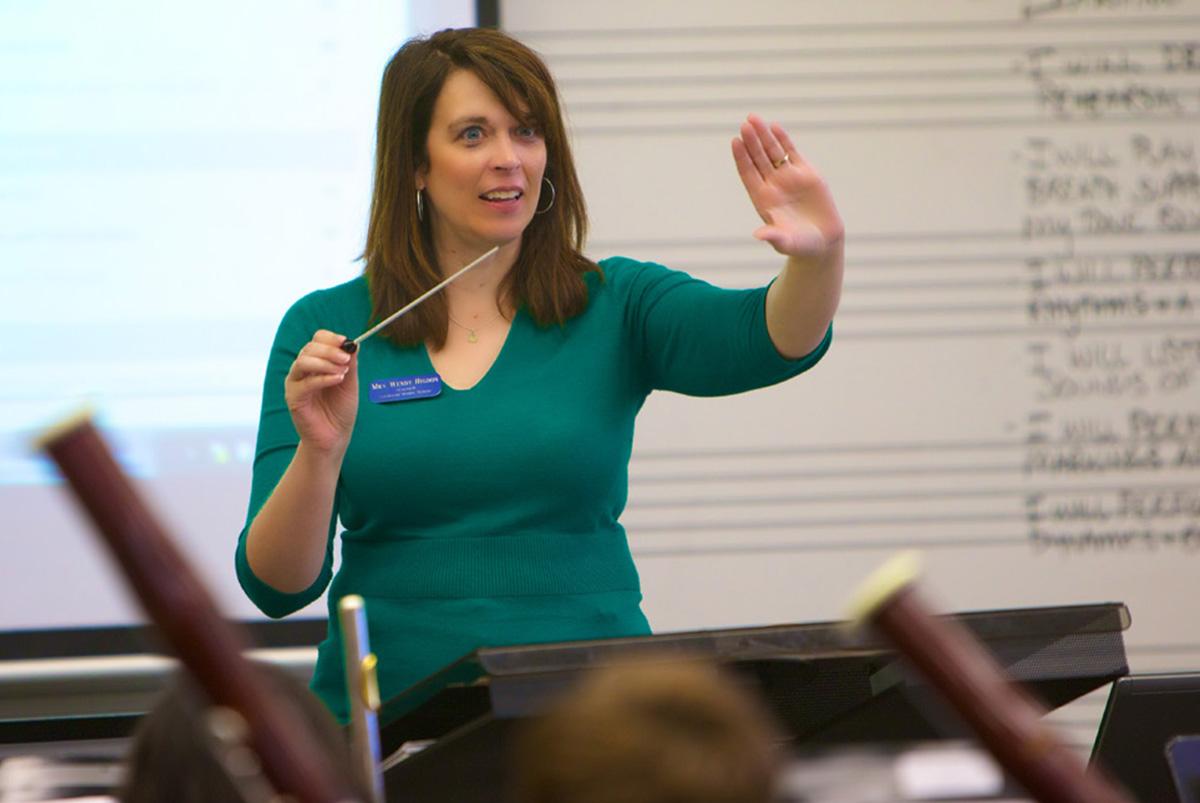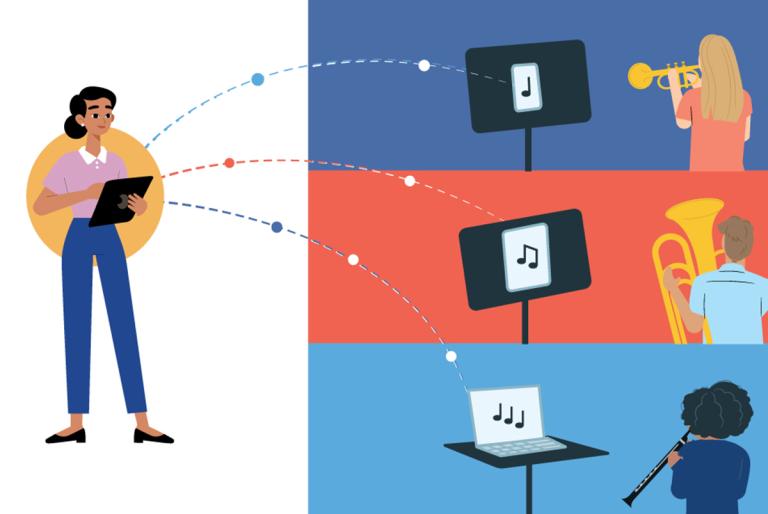
Performance Assessment Software Helps Students Achieve More
Performance assessment software has been a valuable tool in my band classroom for many years. Using this type of software helps me guide the practice process that happens at home, while motivating students and increasing their achievement, rather than simply leaving them to just “figure things out on their own.”
I find that the specific feedback provided to students is helpful as they practice at home, and the accountability of submitting an assignment is a strong motivator in the learning process. As a result, students master music more quickly and accurately when there is an assignment through the software. In fact, the difference in the learning curve is so obvious that I will seek out pieces that are part of the software library to perform with my groups whenever possible.
A few ways that I incorporate performance assessment software include:
Slowing Down
I give students practice assignments over a difficult passage and requiring them to submit at a slow tempo. By requiring a slow tempo, students are forced to resist the temptation to rush through a passage. Mistakes are more easily identified and corrected, and students are less likely to develop bad habits and technique. Subsequent assignments can be given that gradually increase the required tempo.
Setting Specific Goals
I incorporate assignments that require a specific level of mastery to submit. For example, when learning a new piece of music, I find it advantageous to give assignments that require students to learn at least 85% of the notes and rhythms within the first few days of receiving a new piece. When students submit by the due date and earn a score of 85% or higher, they receive 100% in the grade book. This is a strong motivator for students to get the majority of notes and rhythms down quickly, and results in much more productive rehearsals at school.
Using an Achievement System
These types of systems are called by a variety of names (e.g. Hand-Off, Band Karate, etc.), but are a great way to motivate students while allowing them to work at their own pace. I find that using performance assessment software to run these systems saves a great deal of time, both in the classroom and out. Typically, I will set up levels with increasingly challenging exercises for the students to master. Once the student can earn the required score (typically 95 - 100%), the students submit the assignment.
Centering Musicality
I can have students focus on specific skills, such as intonation, since PracticeFirst, the performance assesment tool that I use in my classroom, breaks down scores by duration, pitch, and rhythm.
To focus on intonation, I give students a simple exercise, such as a Remington Study, that focuses on intervals. PracticeFirst, the performance assessment software that my students and I use, will assess the tuning of each interval as it is performed, allowing students to gain personalized knowledge of problematic intervals or notes on their instrument, so that tuning can be addressed. This is a great way to expand student’s knowledge and awareness of tuning tendencies.
The Take-Away
In all cases, student submissions provide valuable data for me, as a teacher. By listening to student submissions and viewing the feedback provided to the student by the software, I can plan future lessons. Often, when checking submissions, it becomes clear which passages need to be broken down in class, where misunderstandings lie, and what skills must be reinforced for students to achieve success. Additionally, I can provide subsequent assignments through the software that specifically target what I have heard in earlier submission recordings.
Performance assessment tools can have many applications and benefits for your classroom and your students’ musicianship that go far beyond a simple playing assignment, by providing support for both teacher and student throughout the learning process. While hearing students perform individually in person is crucial, I have found that the addition of performance assessment technology can enhance the rehearsal process while increasing students’ achievement and saving precious instructional time for more musical moments.
About Wendy Higdon
Wendy Higdon is in frequent demand as a clinician, including sessions presented at The Midwest Clinic, and the Australian National Band Conference, where she was a keynote presenter. She was recognized as the Outstanding Bandmaster for 2020 by Phi Beta Mu, Gamma Chapter and she is also a past recipient of the “Fifty Directors Who Make a Difference” Award from School Band and Orchestra Magazine.

